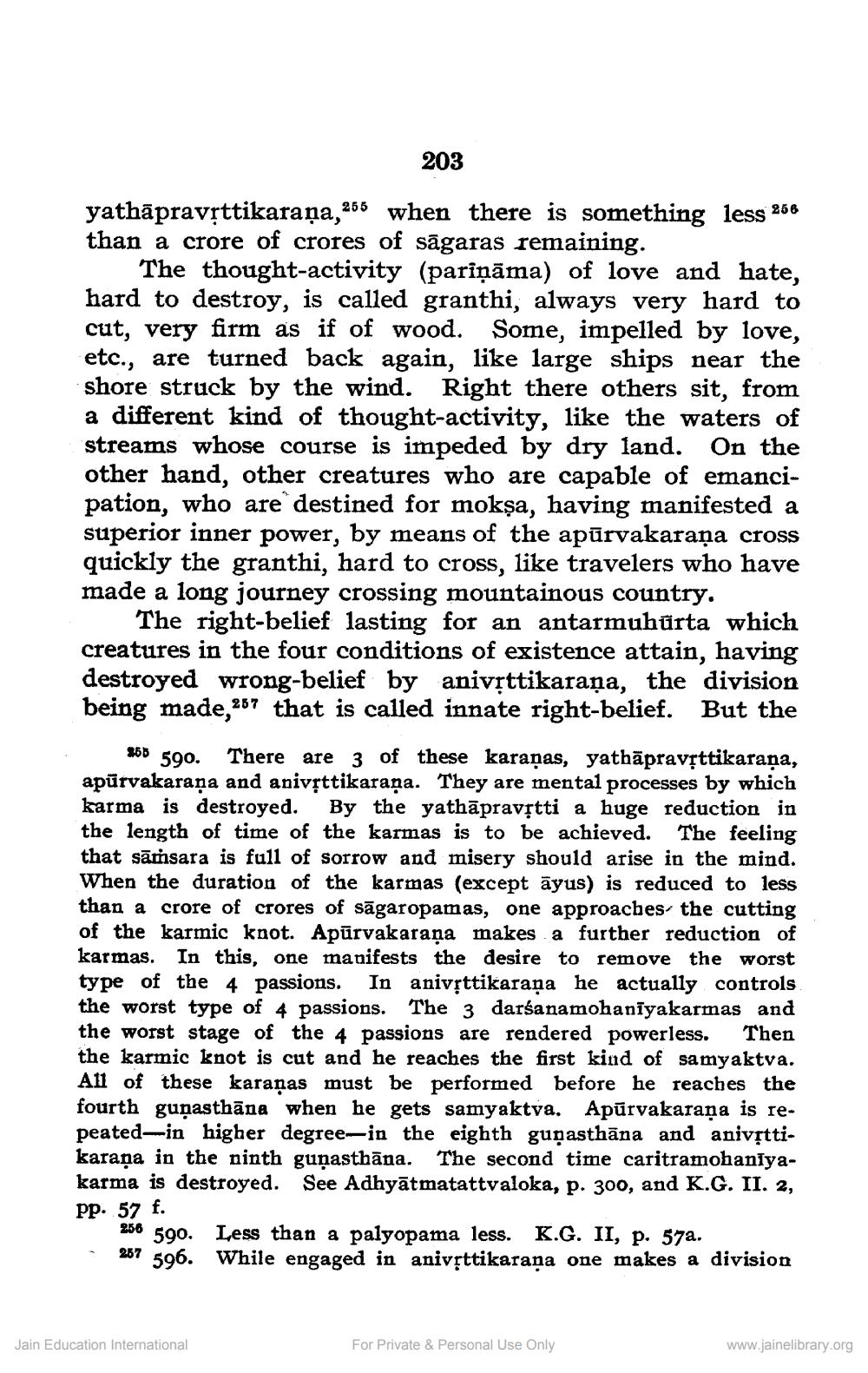________________
203 yathāpravịttikaraṇa,255 when there is something less 256 than a crore of crores of sāgaras remaining.
The thought-activity (pariņāma) of love and hate, hard to destroy, is called granthi, always very hard to cut, very firm as if of wood. Some, impelled by love, etc., are turned back again, like large ships near the shore struck by the wind. Right there others sit, from a different kind of thought-activity, like the waters of streams whose course is impeded by dry land. On the other hand, other creatures who are capable of emancipation, who are destined for mokşa, having manifested a superior inner power, by means of the apūrvakaraṇa cross quickly the granthi, hard to cross, like travelers who have made a long journey crossing mountainous country.
The right-belief lasting for an antarmuhurta which creatures in the four conditions of existence attain, having destroyed wrong-belief by anivịttikaraṇa, the division being made, 267 that is called innate right-belief. But the
865 590. There are 3 of these karanas, yathāpravsttikarapa, apūrvakarana and anivsttikaraña. They are mental processes by which karma is destroyed. By the yathāpravstti a huge reduction in the length of time of the karmas is to be achieved. The feeling that sāṁsara is full of sorrow and misery should arise in the mind. When the duration of the karmas (except āyus) is reduced to less than a crore of crores of sāgaropamas, one approaches the cutting of the karmic knot. Apūrvakaraṇa makes a further reduction of karmas. In this, one manifests the desire to remove the worst type of the 4 passions. In anivșttikarana he actually controls the worst type of 4 passions. The 3 darśanamohanīyakarmas and the worst stage of the 4 passions are rendered powerless. the karmic knot is cut and he reaches the first kind of samyaktva. All of these karañas must be performed before he reaches the fourth gugasthāna when he gets samyaktya, Apūrvakaraṇa is repeated-in higher degree in the eighth gupasthāna and anivstikarana in the ninth gunasthāna. The second time caritramohanlya. karma is destroyed. See Adhyātmatattvaloka, p. 300, and K.G. II. 2, pp. 57 f.
256 590. Less than a palyopama less. K.G. II, p. 57a.
596. While engaged in anivrttikarana one makes a division
Jain Education International
For Private & Personal Use Only
www.jainelibrary.org




